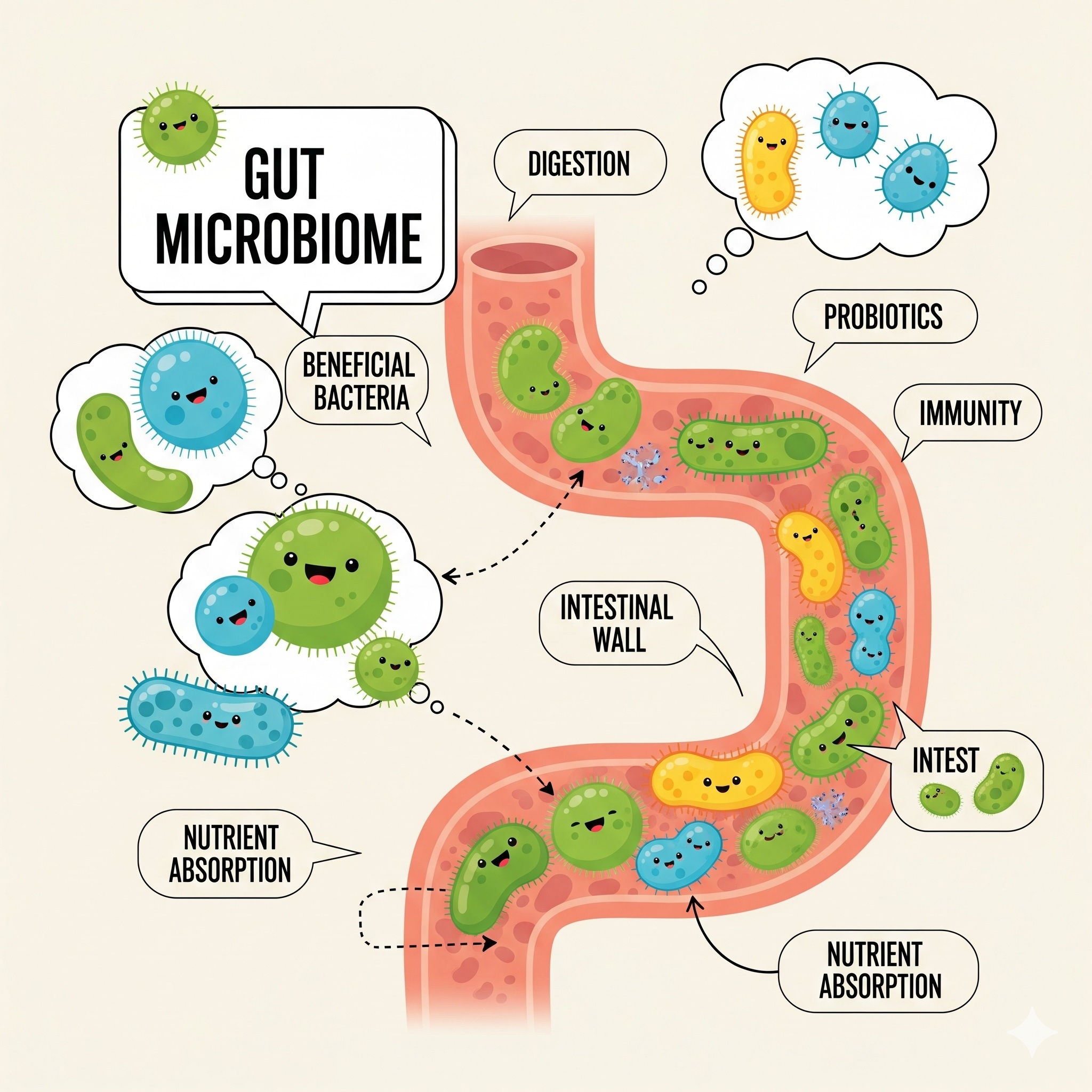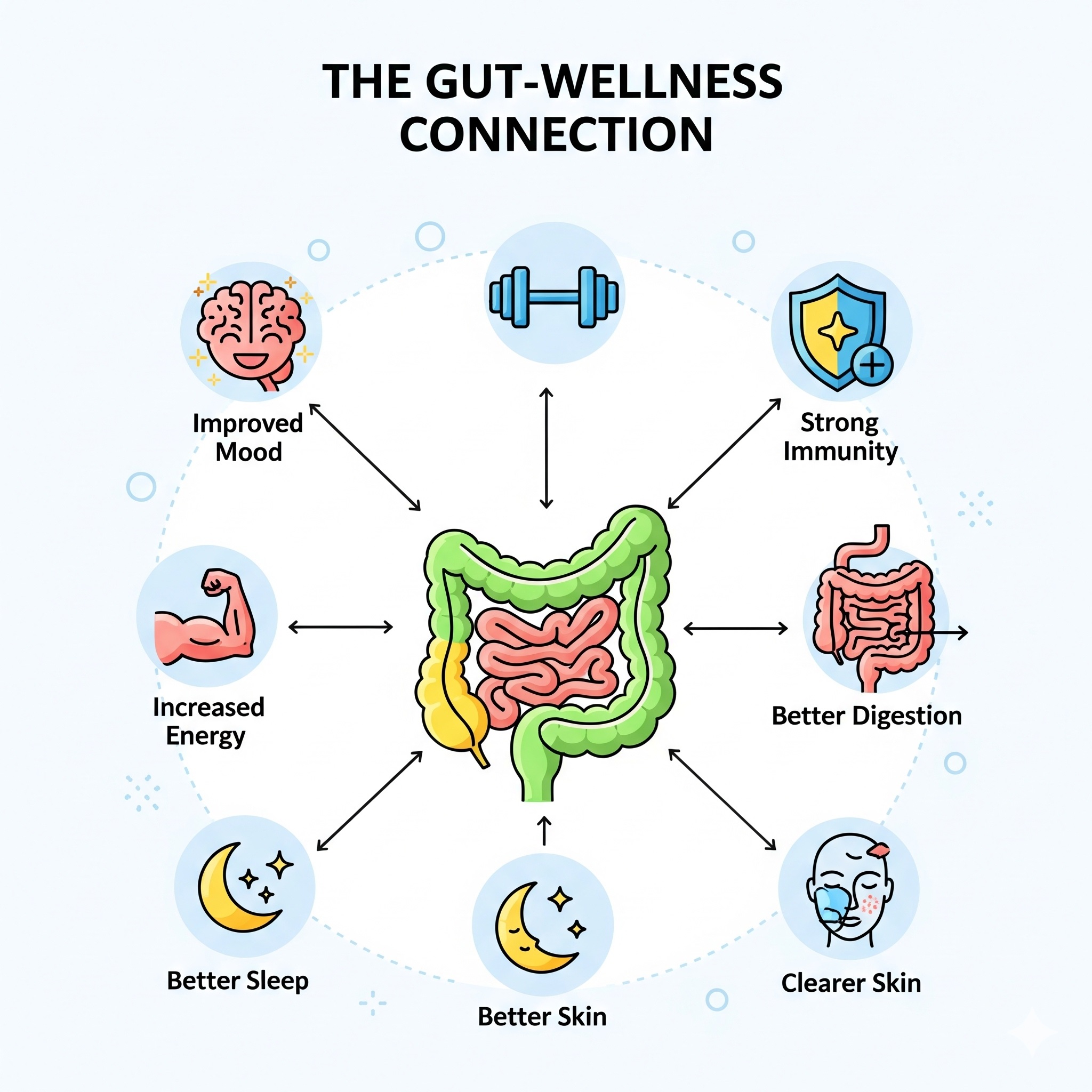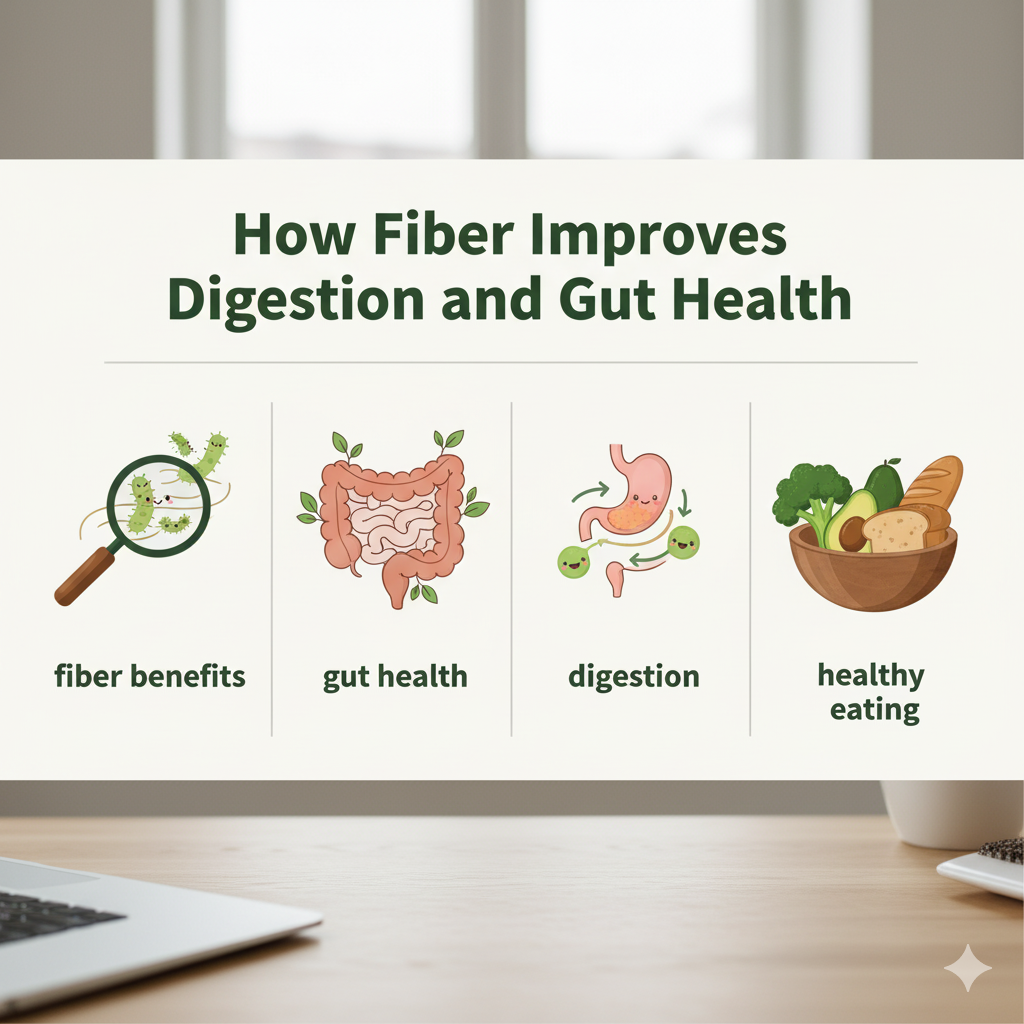Your gut is home to trillions of microorganisms that work together to keep your body healthy. This complex ecosystem, known as the gut microbiome, plays a crucial role in digestion, nutrient absorption, immune defense, and even mental well-being. When your gut is balanced, you feel energized, focused, and resilient. When it’s out of balance, you may experience bloating, fatigue, skin problems, and frequent illness.
The good news? There are plenty of natural gut health tips you can start implementing today. In this article, we’ll explore science-backed strategies for supporting your gut, boosting digestive wellness, and using probiotics wisely.
Why Gut Health Matters
The gut is more than a digestive tube — it’s a major control center for your entire body. Here’s why improving gut health should be a priority:
- Better Digestion: Healthy gut bacteria help break down food and extract nutrients.
- Stronger Immunity: 70% of the immune system is located in the gut.
- Mood and Mental Clarity: The gut produces neurotransmitters like serotonin, influencing mood and focus.
- Metabolism and Weight: A diverse microbiome supports balanced energy and reduces cravings.
Natural Gut Health Tips
Let’s dive into practical, natural steps you can take to improve your gut health starting today.
1. Eat a High-Fiber Diet
Fiber is the favorite food of beneficial bacteria. When gut microbes ferment fiber, they produce short-chain fatty acids that nourish your intestinal lining and reduce inflammation. Aim for:
- Vegetables: broccoli, spinach, carrots
- Fruits: apples, pears, berries
- Whole grains: oats, brown rice, quinoa
- Legumes: beans, lentils, chickpeas
A simple rule: “Eat the rainbow.” The more colors on your plate, the more types of fiber you consume — which encourages microbial diversity.
2. Include Fermented Foods
Fermented foods are natural sources of probiotics, which add good bacteria to your digestive tract. Regularly including them in your meals can improve digestion and gut balance. Try:
- Yogurt with live active cultures
- Kefir (fermented milk drink)
- Sauerkraut and kimchi
- Miso, tempeh, or natto
Start slowly if you’re new to fermented foods, as they may cause mild bloating at first.
3. Stay Hydrated
Water is essential for digestion and helps move food smoothly through the intestines. Proper hydration also supports the mucus layer that protects the gut lining. Aim for at least 2 liters (about 8 cups) per day, more if you are active.
4. Manage Stress
Your gut and brain are connected through the gut-brain axis. High stress can disrupt gut function and lead to symptoms like stomach upset, bloating, and even microbiome imbalance. Support your digestive wellness with stress-reducing activities:
- Meditation or breathing exercises
- Yoga or gentle stretching
- Spending time in nature
- Journaling or mindfulness practices
5. Get Enough Sleep
Your microbiome has its own circadian rhythm. When you consistently sleep 7–9 hours per night, you support microbial balance and reduce inflammation. Poor sleep, on the other hand, can increase cravings for unhealthy food and disrupt digestion.
6. Exercise Regularly
Moderate, consistent physical activity improves bowel motility, promotes microbial diversity, and supports immune function. You don’t need intense workouts — brisk walking, cycling, or light strength training for 30 minutes most days is enough.
7. Limit Processed Foods and Sugar
Diets high in refined sugar and processed foods can feed harmful bacteria and yeast, which disrupt balance. Choose whole, minimally processed meals and reduce sugary snacks and drinks.
8. Consider Probiotic and Prebiotic Supplements
While food should be your foundation, supplements can be helpful.
- Probiotics: Choose multi-strain formulas with Lactobacillus and Bifidobacterium species.
- Prebiotics: These are fibers that feed good bacteria (e.g., inulin, FOS).
Talk to a healthcare professional before starting supplements, especially if you have a medical condition.
Habits That Harm Gut Health
If you’re trying to improve your microbiome, watch out for these common mistakes:
- Overusing antibiotics (when not medically necessary)
- Eating a monotonous diet with little plant variety
- Chronic stress or lack of sleep
- Excessive alcohol intake
- Sedentary lifestyle
Making small changes in these areas can quickly shift your gut toward a healthier state.
Long-Term Benefits of Supporting Your Gut
Improving gut health doesn’t just make digestion easier — it impacts your entire body. People who follow these natural gut health tips often report:
- More energy and less fatigue
- Fewer colds and infections
- Improved skin clarity
- Reduced bloating and better bowel regularity
- More stable mood and focus
Over time, supporting your microbiome may even lower the risk of chronic diseases such as type 2 diabetes, obesity, and inflammatory conditions.
When to Seek Professional Help
If you experience severe digestive symptoms such as persistent pain, blood in stool, or significant weight loss, consult a doctor or gastroenterologist. Professional testing can reveal imbalances and guide a personalized approach.
Key Takeaways
- A healthy gut is essential for digestive wellness, immunity, and mental well-being.
- Focus on fiber-rich foods, fermented products, hydration, and stress management.
- Include probiotics naturally or through supplements for extra support.
- Avoid processed foods, get quality sleep, and stay active for long-term results.
By making gradual lifestyle changes, you can create a thriving microbiome that supports you for years to come.




